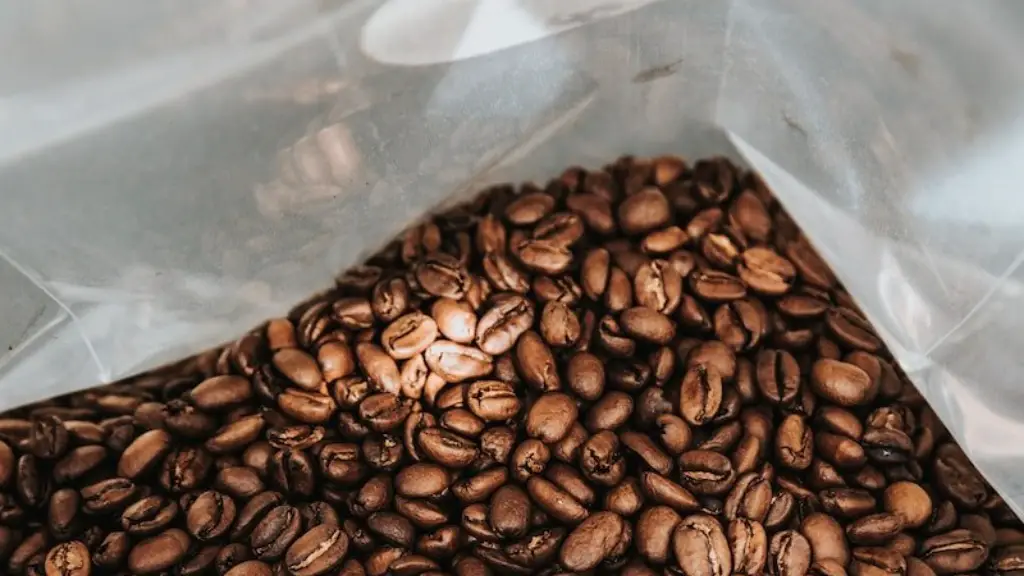Can You Drink Coffee Before a Pulmonary Function Test?
If you are wondering can you drink coffee before a pulmonary function test, the answer is yes – although too much coffee may interfere with the accuracy of your test results. A pulmonary function test is a diagnostic tool used by doctors to measure the health of your lungs by testing them for volume, capacity, gas levels and other data. This information can help the doctor understand how your lungs are functioning and if there are any underlying problems or diseases. During the test, you will be asked to exhale into a machine that measures the amount of air you inhale, how quickly you exhale, and the level of oxygen in your blood.
Caffeine can affect your results, so it is important to drink coffee in moderation before the test. Caffeine is a stimulant and can cause your pulse rate and blood pressure to increase. This can affect the accuracy of the test results. For this reason, it is important to follow the instructions provided by your doctor when it comes to drinking coffee before the test. If you are instructed to abstain from it, then it’s best to follow these directions.
Experts recommend avoiding coffee for at least three hours before the test. If you feel that you need a cup of coffee to get through the test, then it’s best to opt for decaf. Decaf coffee still contains small amounts of caffeine, but not nearly as much as regular coffee. This should ensure that the results of your pulmonary function test remain accurate.
In addition to following the instructions given to you by your doctor, there are some other factors to consider when preparing for a pulmonary function test. Make sure to avoid smoking and strenuous exercise prior to the test, and do not change your diet drastically before the test – this may also affect the results. It’s also important to dress comfortably and to be relaxed; if you are nervous your results may not be as accurate.
Your doctor and the medical professional conducting the pulmonary function test can provide you with specific instructions on how to prepare for the test. These instructions may include advice on what to eat or drink before the test. Following the guidelines provided by the doctor can help ensure accurate and reliable results.
How Does Caffeine Affect Your Respiratory System?
Caffeine is known to be a stimulant and it can affect your respiratory system. Caffeine can act as a bronchodilator, meaning that it relaxes the muscles in your airways and can make it easier to breathe. It can also increase heart rate and breathing rate, which can in turn lead to increased oxygen intake. Additionally, caffeine can also increase the amount of air that is expelled from the lungs. All of these factors can affect the results of the pulmonary function test and it is important to be mindful of this when consuming coffee before the test.
However, it is important to note that caffeine can also impair lung function. Studies have found that the use of caffeine on a regular basis can lead to bronchoconstriction, a condition in which the airways of the lungs are narrowed and less air is able to enter the lungs. This can lead to various pulmonary issues such as shortness of breath and asthma. Therefore, it is important to drink coffee in moderation and to avoid consuming large amounts of caffeine on a regular basis.
It is also important to consider the other ingredients in coffee. Milk and sugar can also affect the results of your pulmonary function test. Too much sugar can lead to an increase in airway pressure, while too much milk can lead to a decrease in airway pressure. Therefore, if you plan on consuming coffee prior to the test, it is best to opt for an unsweetened variety.
Should You Avoid Caffeine Before a Pulmonary Function Test?
Although it is important to be mindful of the effects of caffeine on the results of a pulmonary function test, moderate consumption of coffee is typically okay. In general, experts recommend avoiding coffee for three hours before the test. If you decide to drink coffee before the test, opt for decaf to minimize the effects of the caffeine. Following the instructions of your doctor and being mindful of your caffeine intake can help you ensure accurate and reliable results from your pulmonary function test.
Other Beverages That May Interfere With a Pulmonary Function Test
In addition to coffee, there are other beverages that may interfere with the results of a pulmonary function test. Alcohol should be avoided prior to the test, as it can affect both heart and lung function. Energy drinks can also be problematic, as their high caffeine content can interfere with the results. Furthermore, carbonated beverages such as sodas and sparkling waters can cause the lungs to retain more air, leading to inaccurate measurements.
It is best to avoid these beverages prior to the pulmonary function test. This will help to ensure accurate results, as well as minimize any potential complications from consuming these beverages. In addition, avoiding any activities such as smoking or strenuous exercise prior to the test is also recommended.
Importance of Accurate Pulmonary Function Test Results
Accurate results from a pulmonary function test are essential for determining the health of your lungs. This test is used to check for various issues such as asthma and COPD, as well as other conditions that can affect the lungs. By understanding the results from a pulmonary function test, doctors can identify any abnormalities or underlying issues that may not be apparent otherwise. Therefore, it is important to follow the instructions provided by your doctor and take the necessary steps to ensure accurate test results.
In addition to following instructions, it is important to be mindful of the effects of various substances on the results of a pulmonary function test. Caffeine is known to affect the results, so it is important to avoid large amounts of coffee prior to the test. Alcohol, energy drinks and carbonated beverages should also be avoided. By avoiding these substances and following the instructions of your doctor, you can ensure that the results of your pulmonary function test remain accurate.
Health Benefits of Caffeine
Although it is important to avoid too much caffeine before a pulmonary function test, it is worth noting that moderate consumption of coffee and other caffeinated products can have many health benefits. Studies have shown that moderate consumption of caffeine can lead to improvements in focus and alertness, as well as physical performance. In addition, it has also been linked to a reduced risk of certain illnesses such as Alzheimer’s, diabetes and Parkinson’s disease.
Caffeine can also have positive effects on the cardiovascular system. It can decrease levels of bad cholesterol and increase levels of good cholesterol, which can lead to improved cardiovascular health. Furthermore, it has also been linked to a reduced risk of stroke and coronary heart disease. Therefore, drinking coffee in moderation can be beneficial to your health.
Finally, caffeine can also help to reduce feelings of fatigue and improve mood. Although too much caffeine can lead to negative effects such as anxiety and irritability, moderate consumption can lead to improved concentration and focus, as well as improved mental health. For this reason, it is important to keep your caffeine intake to a moderate level.
Tools To Measure Caffeine Intake
Although it is important to avoid large amounts of caffeine prior to a pulmonary function test, drinking coffee in moderation can be beneficial to your health. There are several tools that can help you measure your caffeine intake and ensure that you are not consuming too much. Health and fitness apps such as MyFitnessPal and Welltory can help you keep track of your caffeine intake and ensure that you are not consuming too much on a daily basis.
Moreover, you can also purchase tools such as caffeine monitors to measure your caffeine intake. These tools are small devices that can detect the level of caffeine in your body and provide you with accurate readings. By using these tools, you can ensure that your caffeine intake remains within a healthy range.
In conclusion, it is important to be mindful of the effects of caffeine on the results of a pulmonary function test. It is best to avoid coffee for at least three hours prior to the test, and it may be necessary to abstain from it altogether if instructed to do so by your doctor. Moderate consumption of coffee may be beneficial to your health, and there are several tools available to help you measure your caffeine intake.




